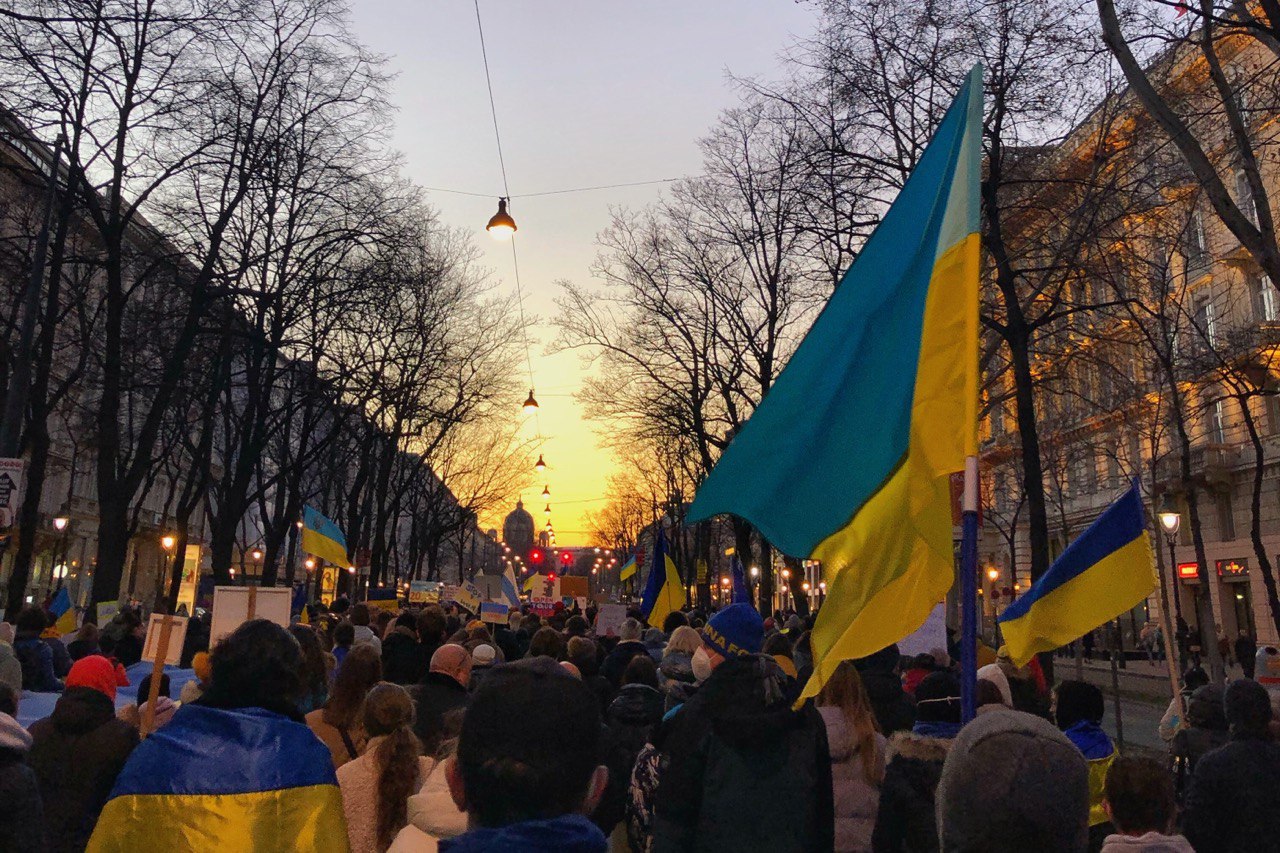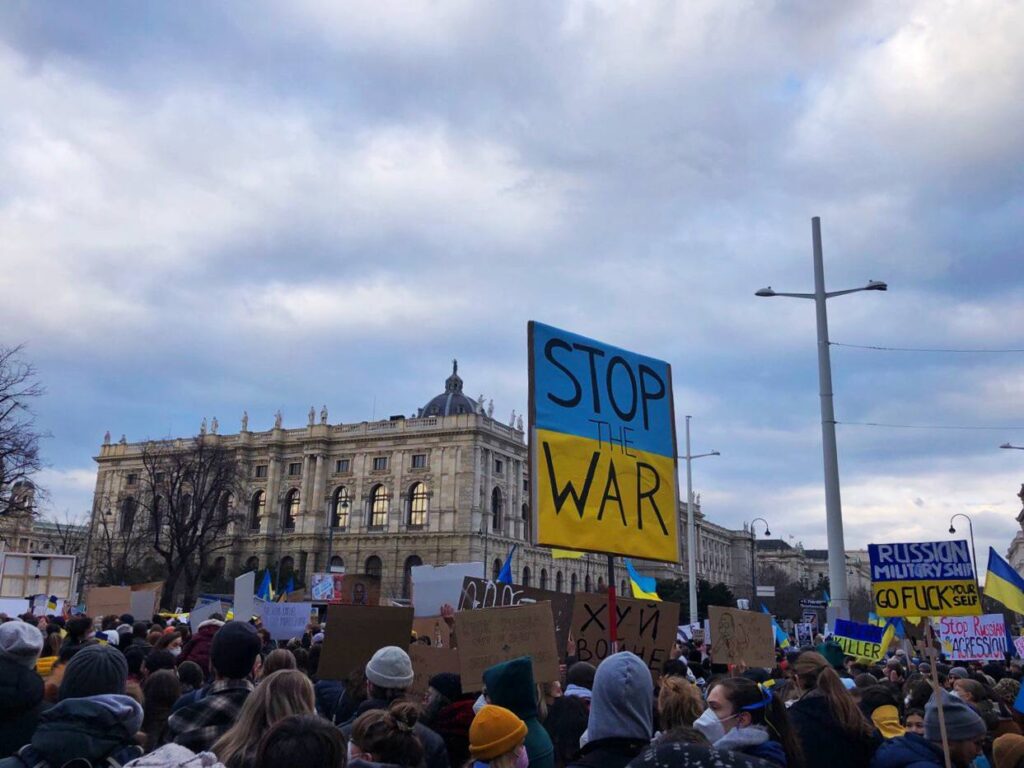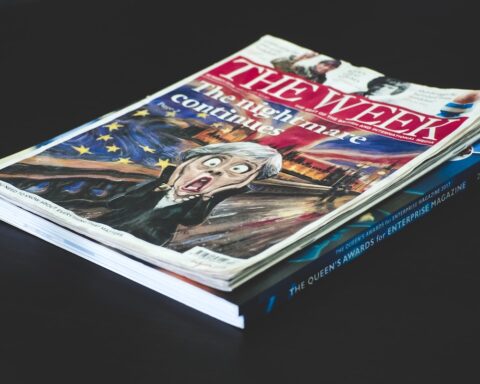On February 24th, I woke up at 5 am to my mom’s message: “Hey, we’re all fine, just in case. I have already called everyone“. Half-asleep, I thought: “This is great news, but why do I need this information so early in the morning?” and went back to sleep. I couldn’t close my eyes again as minutes later I got another message from my cousin. She said she was afraid as she heard the shelling and explosions.
My heart dropped: Russia attacked my home country, Ukraine. I then had to make a few phone calls, having to put the ugliest words into my mouth: “Hello, sorry to call you so early, but the war in Ukraine has started”. Instead of an answer, I just heard “What?” and weeping.
My mother wrote to me from Kiev, I called my friend from Nikolaev and talked to my friend from Lemberg. Except there is no Lemberg, just as there is no Kiev or Nikolaev. These cities are called Lviv, Kyiv, and Mykolaiv. However, people are used to calling Ukrainian cities by Russian names or, as in the case of Lemberg or Czernowitz, the names from the Austrian-Hungarian Empire.
Each Ukrainian city has its own Ukrainian name, whereas the well-known “Kiev” is nothing but an imperialistic atavism.
Why it is a big deal
We live in a world where we are encouraged to pay attention to our language. However, even with the full-scale Russian war against Ukraine going on for two months, many media outlets still do not use the proper names of the cities they report on daily. This arrogance does not only show a lack of professionalism but is also offensive to Ukrainians.
Not all people are ready to accept this fact and often deny the importance of calling Ukrainian cities by their real names. They debate it, often using various arguments.
Argument 1: This is just English/German/any other language, so it does not have anything to do with politics.
No, it is not. This is not just an English or German name for a city. The names of most Ukrainian cities were simply transcribed from Russian instead of using the original. Putting it simply, the etymology of the word “Kiev” has nothing to do with the English language. These are just Russian letters transcribed to the Latin alphabet.
The reason for this is that a big portion of Ukrainian territory was part of the Russian Empire, and later Ukraine became one of the Soviet Republics. In both cases, the official language was Russian. And the government did everything to russificate all parts of the Empire.
The situation was different in the West of Ukraine: Eastern Halychyna, Northern Bukovyna, and Zakarpattia regions were part of Austria-Hungary. The Habsburg Monarchy gave Ukrainian cities new names, such as Lemberg (Lviv) or Czernowitz (Chernivtsi).
The names of parts of Ukraine may also sound frustrating. It was common to say “Western Ukraine”, but with propaganda using terms like Western or Eastern Ukraine in order to show two different Ukraines, split into halves, people started saying West / East / South / North of Ukraine. Encouraged by the authorities, this wording indicates that Ukraine is not a divided but one united country.
The narrative of people from the East of Ukraine being utterly different from the people from the West has been nourished for decades. According to propaganda, people from different parts of Ukraine have different values and cultures and speak other languages. Some international media have also fallen for this trap and reported that “Western” Ukraine is pro-European (or even nationalistic and far-right) and “Eastern”- pro-Russian.
The fact is, Ukraine is a huge country. Its territory covers 603.548 square kilometers. Logically, different regions of Ukraine have dialects and special traditions, but they all are Ukrainian. And Ukrainians embrace those differences instead of letting them divide the people, as this is what makes each region special, unique and alive.
Art-work “My Comfort Zone” of the Ukrainian Artist Oleksandr Grekhov from Kyiv at this year’s Biennale di Venezia
Ukraine is now an independent country, so adjusting the international names of the cities in accordance with the Ukrainian language instead of using archaic terms is rational. For instance, most people wouldn’t call Dushanbe, the capital of Tajikistan, “Stalinabad”, or the Kyrgyz capital “Frunze” instead of Bishkek. But these are also archaic imperialistic city names from the Soviet times. Following the logic with the Russian-rooted name “Kiev”, Kyrgyzstan should have been called “Kirghizia” – this is how the country’s name sounds in Russian and what it was called in the USSR. An example from the Austrian Empire: do you call Bratislava Preußberg?
Ukraine was thought to be a province of the Russian Empire and later the USSR for a very long time, but it is an independent country with its own culture and language. Until recently, many people did not even know Ukraine existed, despite it being the second biggest country in Europe. So when not using the proper name of a Ukrainian city on purpose, it may look ignorant for a lot of people.
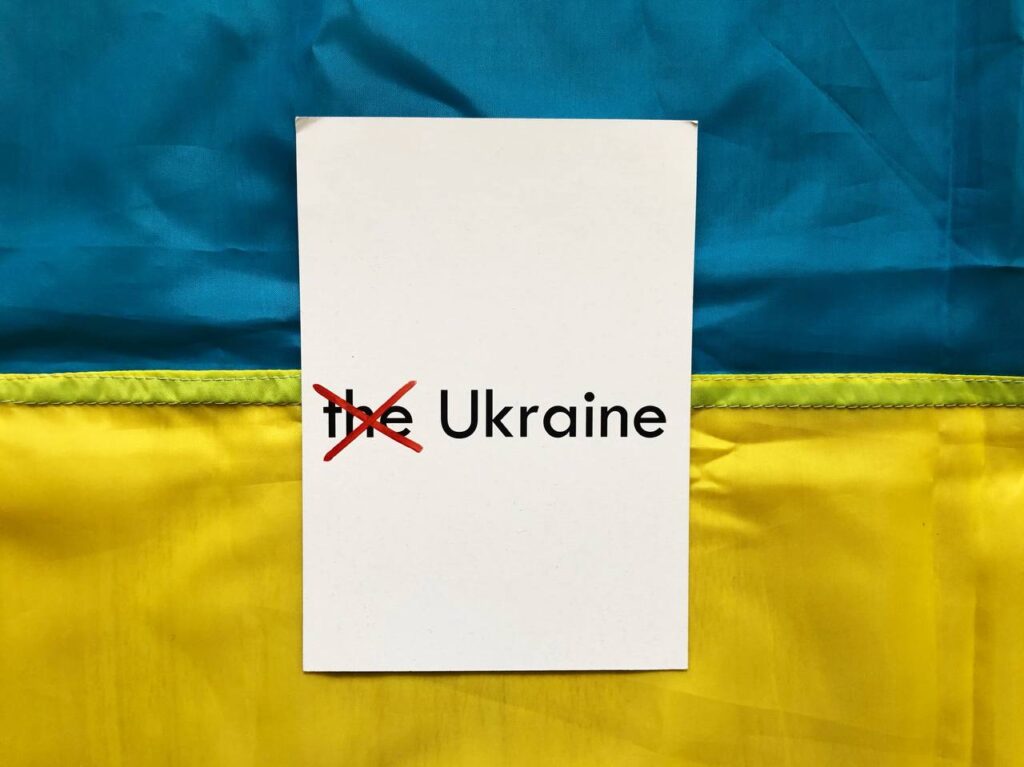
Language is an essential part of any communication, so it is connected to politics.
Argument 2: This is not important. There are much bigger issues now.
Yes, there are bigger problems now. However, the post-colonial attitude towards Ukraine contributed to the escalation of today’s situation. Consequently, the language issue is important. At the same time, trying to distract people with other problems instead of solving the issue is whataboutism.
It does not take a lot of time to change a city’s name in an article or look up how to write it correctly. Many media outlets, especially German-speaking ones, do not want to adjust anything. You can find comments from journalists that they will not change the names of the cities, as this is how they should be written in German. Even after the Austrian Ministry of Foreign Affairs’ statement about only using Ukrainian transliteration for Ukrainian cities, Austrian media stubbornly continue to use obsolete imperialistic names.
The refusal of the media to use proper naming shows the ignorant attitude towards the country of Ukraine, and a lack of understanding of the topic. For Ukrainians, this is demeaning.
While the whole world listens to the news about Ukraine daily, it would be great to have journalists report about the proper cities because it provides an opportunity to finally get rid of prejudices and learn more about Ukraine.
If other countries – without a colonial history with Ukraine – had their own names for Ukrainian cities, it would be less problematic. But if they use a simple transliteration of the name, it should be derived from Ukrainian, not Russian.
Ukrainian names for cities identify them as Ukrainian. Everyone has a right to self-identification, and it should be respected. It is almost surreal to hear about the Russian invasion of Ukrainian cities which are pronounced à la Russian.

Argument 3: Ukrainians speak Russian themselves, so it does not make any difference.
Yes, we do. Yet, Ukrainians speak Russian because of centuries of oppression, repressions, russification, and ethnic cleansings. Ukrainians (alongside other Soviet Republics and even indigenous people of Russian territory) were forced to speak Russian. Without speaking this language, one could not achieve a lot while living in the Soviet Union. Speaking Ukrainian then meant being either uneducated or nationalistic.
The Ukrainian language was prohibited dozens of times: “Overall, there have been 60 prohibitions on the Ukrainian language in the 337 years that Ukraine was under foreign rule”, at least 49 of those happened due to Russia.
Ukrainians paid a huge price for being able to speak their language – a lot of them gave their life for it.
In the 1930s, a whole generation of Ukrainian-speaking intelligence, writers, and artists was killed for being Ukrainian. They are now called the Executed Renaissance.
The oppressions went on: poet Vasyl Stus had to spend 13 years in a forced labor camp for being pro-Ukrainian. He died in prison. His friend, artist Alla Horska, was killed under the surveillance of the KGB for the same reason.
Ukrainian filmmaker Oleh Sentsov from Crimea spent six years in a Russian prison. The conviction was fabricated. Sentsov was a political prisoner because of his Ukrainian position.
As many as 130 people were killed during the Revolution of Dignity while fighting for their own future. They are now called the Heavenly Hundred.
These are just a few out of thousands of examples of how Ukrainians were oppressed in the past. Almost every Ukrainian family has a story of being humiliated, oppressed, or depreciated for their own roots, including mine.
We do speak Russian, as we had no other choice. However, Ukraine has only one official language, which is Ukrainian.
#KyivNotKiev
Ukraine finally gained its independence on August 24th, 1991. People fought hard for it. Yet, since the beginning of the temporal occupation of Ukrainian Crimea by the Russian Federation and the war in the East of Ukraine in 2014, Ukrainians must fight again.
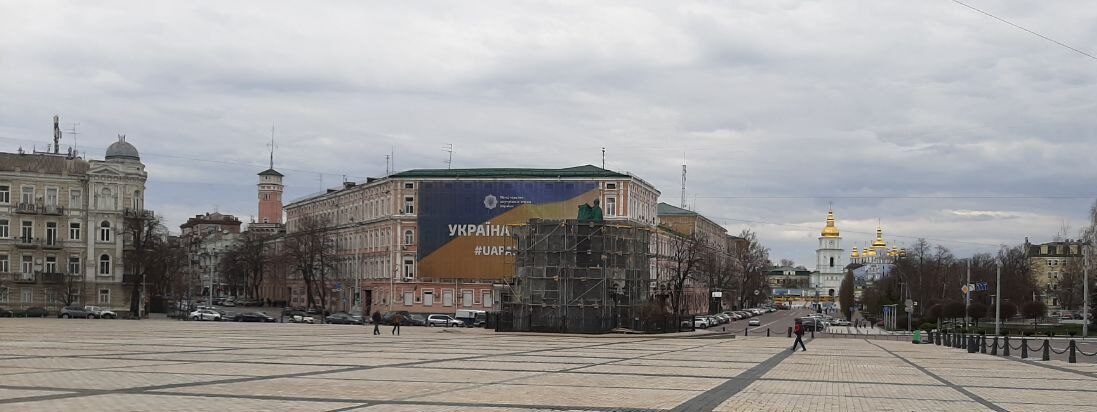
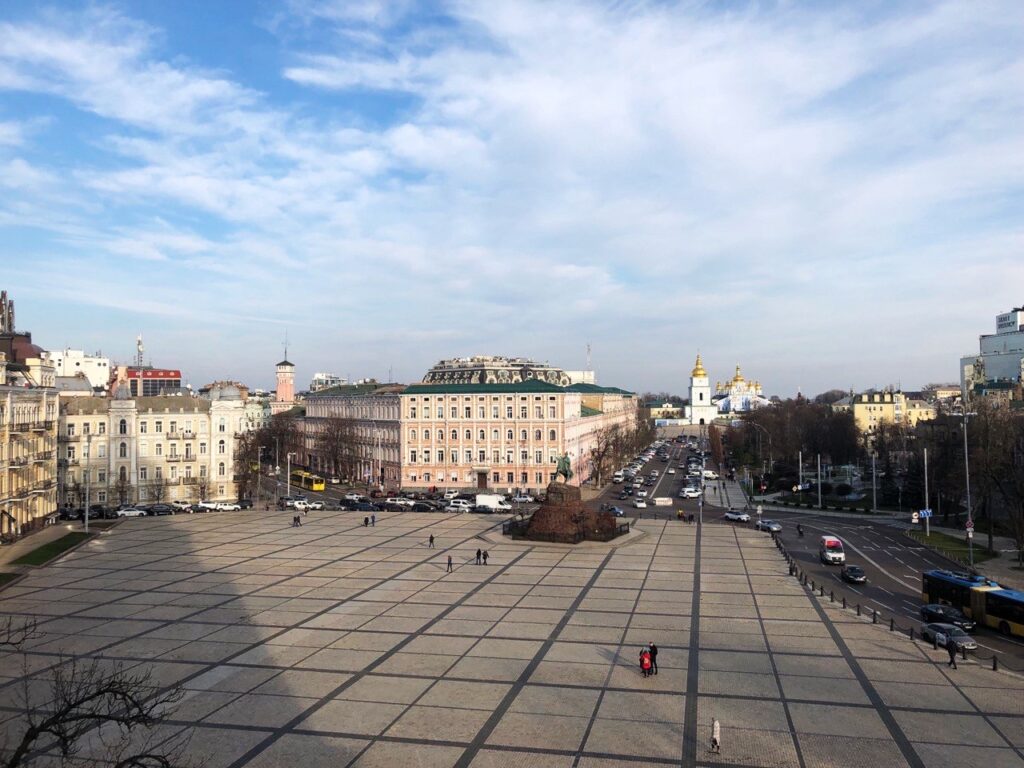
The fighting has been happening not only on the frontline but also in the fields of culture and information since people also have to resist misinformation and propaganda.
As part of the ‘CorrectUA’ campaign, the Ukrainian Ministry of Foreign Affairs started the KyivNotKiev campaign in 2018. It aims to persuade international media and organizations to use the transliterations of Ukrainian cities’ names derived from the Ukrainian language instead of Russian. This is supposed to help ensure that the correct, internationally agreed place names for Ukrainian cities are adopted.
The 10th UN Conference even adopted the Resolution the Standardization of Geographical Names. For this standardization, the “Romanization system in Ukraine” is supposed to be used as the international system for the transliterations of the Ukrainian geographical name.
Despite this campaign, and even though the Ukrainian government approved the official transliteration of Ukraine’s capital as “Kyiv” in 1995, the Russian version “Kiev” is still widely used. Even googling “Kyiv” can be challenging.

Ukrainians react to this situation with hurt because Ukrainian language is an old, authentic, and self-sufficient language.
The lack of knowledge on this topic often makes people think that the Ukrainian language developed from the Russian language. It leads to the very popular statement that Ukrainian is just a “dialect” of Russian. This is a misconception.
For instance, the poem “Eneida” was written by Ivan Kotliarevsky in 1798. It is considered the first book written wholly in the Ukrainian language which greatly influenced modern Ukrainian. Pushkin, who is referred to be the father of modern Russian literature, was born a year later, in 1799.
#StandWithUkraine
Since the beginning of the full-scale Russian invasion of Ukraine, the fighting got more severe. And the issue of language and appropriate usage of names is now pressing as ever as language is an essential part of Ukrainian self-identification, sovereignty, national identity, and culture.
“The Ukrainian flag is today the flag of freedom.”
Ursula Gertrud von der Leyen, President of the European Commission
We consume countless pieces of information. With social media, the speed at which we receive news is overwhelming. TEDxVienna author Ioana Varga writes: “In the era of online communication, attention is currency, and the potential to exploit it for financial gains is immense.” This is why it is crucial to stay cautious and pay attention to the language we use.
Language is an instrument that can be used for good or for bad. It gives us the ability to communicate and inform. But it can also be used to spread propaganda, misinformation, and create stigmas.
Language gives us power; it gives us a voice. But when shouting oneself hoarse while the world refuses to hear you, one starts losing this voice. Ukrainians will not and cannot stop speaking up, but worldwide support makes this task easier.
You can use your power sufficiently while staying mindful of the language you are using.
Ukrainians will not and cannot stop speaking up, but worldwide support makes this task easier.
Getting rid of old, imperialistic names for Ukraine is just one of many components of fighting propaganda and debunking misinformation while reestablishing a respectful international image of this country.
Using the proper names for Ukrainian cities may look small and unimportant, but it shows your respect for what Ukrainians are going through. And it matters. It is important to #StandWithUkraine.
O word, thou art my only armament,
And both of us should not be vainly spent!
In other, unknown hands, perhaps, who knows?
Thou’lt prove a better brand ’gainst brutal foes.
Lesia Ukrainka
Reviewed by Juxhina Malaj
Proofread by Pauline Bellmann
Featured image by Olena Levitina

